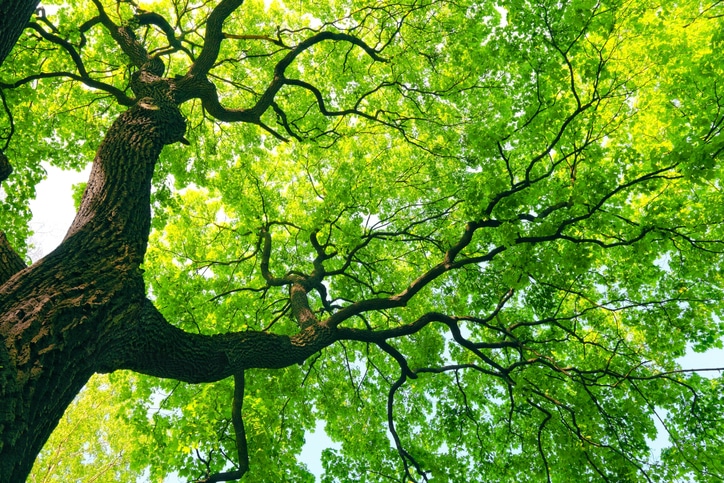Multiple trees on the same property can add shade, invite birds and wildlife and serve as wonderful additions to your landscape. But sometimes, trees can grow too close together and begin competing with one another for resources. This can cause negative effects on surrounding plants and harm the health of the trees.
Strategic tree trimming can help reduce the need for tree competition, ultimately improving tree health and leaving you with a healthier, more balanced landscape. Here are some signs that your trees may be competing with one another.
Overlapping Canopies
Trees should grow close together without intertwining too much. Canopies that intersect can cause branches to compete for sunlight. Look for branches that cross or touch. An arborist can also take a look and let you know if your trees could use trimming to thin out their canopy and improve light penetration.
Patches of Undeveloped Foliage
Sparse or absent leaves mean that a tree is not getting enough sunlight or nutrients to grow. When trees are competing with each other, the less dominant tree will start to show signs of stunted growth.
Sick Trees
Trees that aren’t getting enough light are especially prone to moisture buildup, fungal growth and disease. Weak or dead branches, falling leaves and bark damage are clear indications that your tree needs care.
Increase in Pests
Insects are part of a natural tree ecosystem, but too many of them can cause serious damage and illness. Trees that don’t have enough resources will lack proper defense systems to ward off pests. Increased pest activity and fungal growth are signs that your trees may need trimming and treatment from a professional arborist.
Why Do Trees Compete With Each Other?
Trees close to one another will always wind up competing for sunlight, water and nutrients. Each species has its own adaptive benefits that help it thrive in its environment. Sometimes, a tree with superior adaptations will dominate surrounding trees of a different species.
When planting trees, it’s important to consider both their type and the ideal distance to separate them. Smaller trees should be at least 10 feet apart, while some larger species may need to be 20, 50 or even 100 feet apart.
How Does Tree Trimming Reduce Competition?
Eliminating weak branches helps to promote stronger growth. Subordinate trees can thrive with shorter branches because they are able to absorb more nutrients and receive more sunlight. Dominant trees may benefit from trimming to stop them from overtaking nearby trees.
Trimming can also help prevent negatively affecting the tree’s central leader. This is the main branch or shoot that helps maintain tree health and keep the canopy open. An arborist can help you by developing a maintenance schedule that keeps all the trees on your lot happy and healthy.
Give Your Trees the Best Care Around
If you’re ready to make your trees healthier than ever, contact our team at Princeton Tree Care for professional trimming and pruning services in Princeton, NJ.


